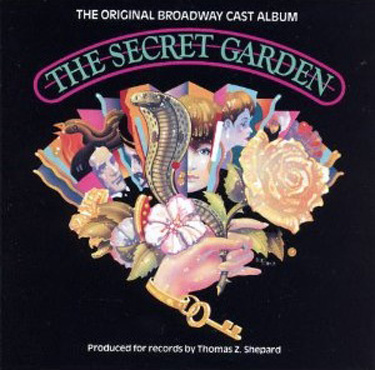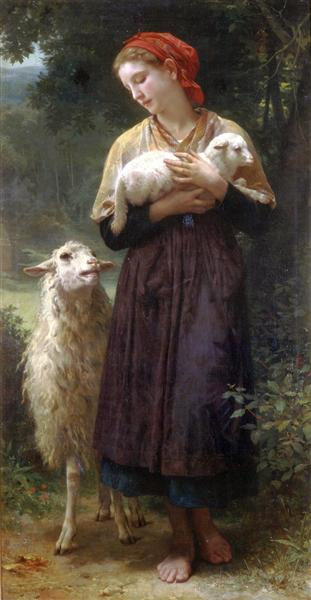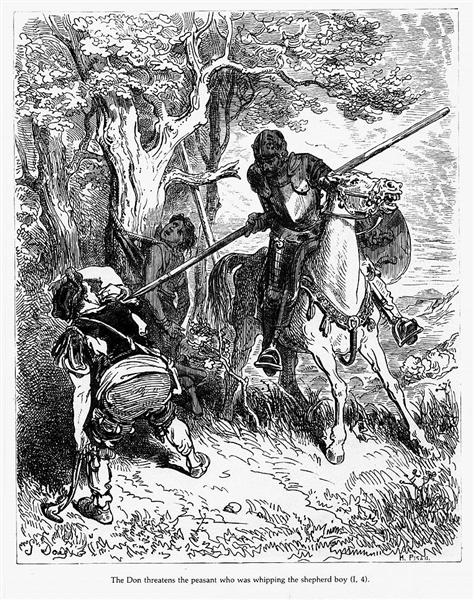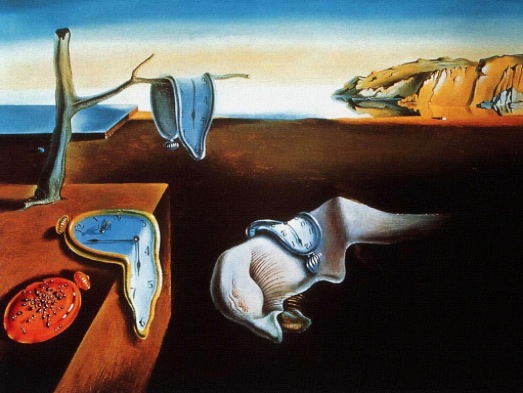The following entry may contain triggering material.
I thought I’d been here before, here being the meadow just within the Gates of the West. It was an overcast day, and I wondered if some sympathetic fallacy would at least spare those from being sung out the door under moderately sunny skies, by chirruping tiny birdies. The Spider Lady’s eyes were like eight dark glass marbles of varying sizes pressed into dough, over a beard split by the make—and stirred by the movement—of eir fanged mouth. Eir limbs appeared human: knees were human elbows, feet were human hands. Eir elbows, too, were human elbows, four of these human arms ending in human hands that—
—cast the razor net.
My beloved became a collection of net-hole shaped pieces as the threads fell through him, though it can’t have been heavier than a cobweb. I suppose the physics of the otherworld, the metaphysics, are largely signifiers. I thought I’d been here before, although hadn’t, I thought I’d watched this happen once or twice before—not to someone I knew who blessed the air with every exhale, who would stop my chest from aching just by consenting to my holding him in my arms. Of course this was “different”, an “exceptional case”, of course: I was upset.
Pieces of him fell bloodlessly, though, which my imagined memory compared to the others who’d burst—tellingly.
Cobb reeled in eir net in the moment it took for me to throw myself onto his body parts. They sunk into the ground, and I turned around up to cry to the Clarene, bring him back, heal him, there wasn’t a drop or sliver of the vile stuff so how could you—
The Clarene looked on with human eyes, set in a darkly beautiful human face, under though mostly in front of a magnificent frizz of human hair, anything other than anthropic or able-typical of her body swathed in a gown made of celestial eclipses. When she spoke, her tone was blunt as a lightningbolt. “What will you pledge in exchange?”
Nothing! I’d answered, because I had nothing suitable for pledging, which itself is unsuitable for pledging. I lose my mind fairly frequently, so I might not have had it with me. Despite my crying over somebody else getting hurt, I was sure I was heartless. I couldn’t pledge any service with a lifetime of learning that I’m useless. Mostly, though: Do it, or don’t do it! But you know what’s right!
If that’s call to close the gate against me, so be it. Even in my despair and desperation, I trust the Clarene’s judgment.
The Clarene melted away—into a more godly-cosmic form, as I can only imagine one does when one is a god—or summoned away maybe? I don’t know.
My beloved resurfaced from the earth, whole and sleeping.
Before I could thank the gods, though, the Spider tsked and threw the net again. I heaved his body away at the threat of eir movement, too slowly: a thread caught on his left forearm, and the hand fell away in chunks. Those didn’t sink into the earth this time.
“Cobb!” I shouted eir name, or at least what I called em. “What the Hell?!?”
The Spider’s marble eyes betrayed no emotion, no reason. I held my beloved tightly—his back to my chest, like I learned in swimming class in the human world, to rescue someone who doesn’t know how to swim—and found Heartwrench’s hilt had appeared, between my hand and his chest. I’m not supposed to still have this.
In any case, the Spider had reeled in the net and made to throw again. Of course Heartwrench’s blade was out, too, and if I only thought through the sword enough then—
—there. Like a bubble of glass, or like an air bubble in water, the rind of a sphere appeared around us. With my free hand, I tugged at his jeans, to try to get his feet inside the sphere. Heartwrench’s spheres are only permeable to those and whom I treasure. Usually. A knowledge dusked on me then: Heartwrench’s sphere couldn’t stop Cobb’s web.
I suppose the physics of the otherworld, the metaphysics, are largely signifiers. Heartwrench makes bubble-shields…and most of the bubbles I’ve taken as a reference, the ones from the human world, those can float. Heartwrench and I had never done that before. Usually, though, if I only think through the sword enough then—
We floated up, and away. Cobb didn’t even look up to watch us go.
~
Even in the otherworlds, my emotional metabolism is too slow. I was still crying in despair when really, I should have been relieved. I didn’t know where we were headed, on what currents we coasted, through the overcast day into clear late afternoon. I caught sight of a dome in the sky, the average size thereabouts of an airport near a capital city, stained glass in no particular pattern, something like stairs sort of notched around it coming from and back around a single wide balcony.
Princess Irene waved us through the balcony opening and into the dome. A description: anthropic, except for the butterfly wings; about as tan as I am, but with slantier features (more refined); hair that could be described as a pixie cut; and wearing something between a toga and a Regency-era gown made out of gauzy veils, so a simple cut and line, but as many hues in the layers as there were in the dome.
Heartwrench and I dissolved the protective floaty sphere over a divan, where I laid his body. Maybe I shouldn’t have been relieved: the color was draining from his body, his hair, and even his clothes.
“He’s not going to die,” I said, although I didn’t know it until I said it, and then I spontaneously knew a bit more: “He won’t wake up, either. It’s not really sleep, it’s…a curse, you know, like in modern versions of the fairy tales he…”…needs somebody who loves him truly to kiss him and wake him up. I sighed. “We’ve got to summon his husband.”
Irene shrugged as if to say, “If you’ve got to, you’ve got to.” Then she wandered back to the balcony.
I might’ve been misled about high fantasy adventures. In the ones I’d read, usually, everybody rushes to help the hero and they fret anxiously until it’s done and okay (especially hospitable bystanders.)
In my experience with the otherworlds, if you know enough about somebody—who’s subject to the metaphysics of that world, anyway—and you find a space that has the potential for that somebody to be there, and you project your own expectation onto it…then they’re there. That’s what I call summoning.
Sometimes you don’t know them well enough. Sometimes there’s no potential to be intuited. Sometimes we don’t know how to project that expectation. Sometimes, I’m sure, they just don’t want to be there. So then they won’t be there.
The husband strode through, too swiftly and determinedly for me to want to slow this with more description—I tried to say how glad I was that he’d come over, but he glanced at the stump of our beloved’s left arm and snapped at me, “Haven’t you done enough?”
I backed away and went over to the balcony.
Epilogue
I shouldn’t still have this, I thought to Heartwrench, and at the corner of the balcony stood the one who was supposed to have it. She was a warrior princess, anthropic, with a quick smile, armored and caped like the Ophelene, but white—for that moment. The next moment—even before I could say hi or how are you doing here—she began to dissolve, starting from the head, into silvery glitter that fell upwards and vanished. A single orange-red, translucent stone appeared, buoyed up in the last curtain of glitter.
I took it and held it into Heartwrench’s hilt until silvery thorns grew around to hold the stone, because that seemed to be the thing to do. From Spenser’s Faerie Queene (Book II, Cant X…okay, the real source material is Shakespeare’s King Lear) I’d called the princess Cordelia—though perhaps she was really Carnelian, some new Crystal Gem from Steven Universe.
So anyway, that was odd.








